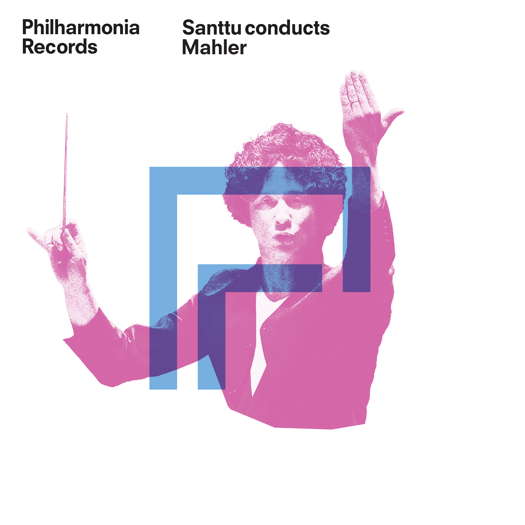 PODCAST: John Dante Prevedini leads a discussion about Classical Music and Visual Disability, including contributions from Charlotte Hardwick, Robert McCarney, Halida Dinova and Giuseppe Pennisi.
PODCAST: John Dante Prevedini leads a discussion about Classical Music and Visual Disability, including contributions from Charlotte Hardwick, Robert McCarney, Halida Dinova and Giuseppe Pennisi.
 DISCUSSION: What is a work? John Dante Prevedini leads a discussion about The performing artist as co-creator, including contributions from Halida Dinova, Yekaterina Lebedeva, Béla Hartmann, David Arditti and Stephen Francis Vasta.
DISCUSSION: What is a work? John Dante Prevedini leads a discussion about The performing artist as co-creator, including contributions from Halida Dinova, Yekaterina Lebedeva, Béla Hartmann, David Arditti and Stephen Francis Vasta.
- Albion Records
- Peter Cornelius
- Teatro del Maggio Musicale Fiorentino
- Wolfgang Sawallisch
- Sven-David Sandström
- José Antonio Abreu
- New Zealand
- Michael Oliver

A Very Worthy Performance
GEOFF PEARCE listens to Santtu-Matias Rouvali conducting Mahler's Resurrection Symphony
'... impressive in its conception and in the quality of the chorus, band and soloists.'
I have never been a particular fan of Gustav Mahler's second symphony. I do not know why, and I have listened to many fabulous recordings of it, and perhaps the one I like the most to date is the live recording of a performance in 1974 that Leonard Bernstein gave with the London Symphony Orchestra, with Janet Baker and Sheila Armstrong.
This new recording with the Philharmonia Orchestra under a conductor I was not familiar with - Santtu-Matias Rouvali, with soprano Mari Eriksmoen, contralto Jennifer Johnston and the Philharmonia Chorus - is also a live performance.
Recording techniques are very different these days, and the acoustics of the venue are also very important, but one thing that is apparent to me in listening to them both, is that there appears to be a little more detail in the orchestral sound of the older recording, but they are both very compelling performances.
This is a very long symphony at about ninety minutes in duration, and at first I found the new recording a bit hard edged and had to listen to it a few times before I wrote this review (as I often do), and I then discovered I liked this new recording very much.
There is some absolutely sumptuous playing in the first movement, the orchestral forces are finely focussed and the contrast of colour, texture and emotional mood are really brought out. I am particularly impressed with the winds and brass - particularly oboes, cor anglais and horns. When the mood is contemplative and relaxed, the effect is magical, and the more emotionally charged and driven sections are almost terrifying in their intensity.
One thing I noticed and appreciated with the old Bernstein recording was how the important harp parts are a bit more prominent as are the passages where the violins play col legno. That is to take nothing away from this new recording - it's just that the detail in the sound is not quite there. Bernstein also tends to be a little more deliberate at times with his tempi, and the music tends to breathe a bit more, however one thing that impresses me in the new recording is that the accelerandos between slow sections and faster ones are especially well realised.
Listen — Mahler: Allegro maestoso (Symphony No 2)
(SIGCD760 CD1 track 1, 12:22-13:09) ℗ 2023 Philharmonia Ltd :
The second movement, a Ländler, is beautifully played, the sound is warm and affectionate and it has much to commend it. Again I love his well-weighted accelerando.
Because this is a quieter movement, I can hear a lot more detail in the playing, too, which is somewhat obscured in the louder moments of other movements. The louder middle section does not suffer from this, and to me, this is the best of the movements in terms of the overall recorded sound.
Listen — Mahler: Andante moderato (Symphony No 2)
(SIGCD760 CD2 track 1, 5:21-6:14) ℗ 2023 Philharmonia Ltd :
The third movement, for my taste, is taken perhaps just a shade fast. This is the one drawn from the Wunderhorn song based on St Anthony preaching to the fishes. However, on saying that, it certainly works ... I would have just been a little less driven. There is, again, some very finely detailed playing and the sections are well contrasted. The louder moments, at least on my system, sounded a bit hard edged.
Listen — Mahler: In ruhig fliessender Bewegung (Symphony No 2)
(SIGCD760 CD2 track 2, 2:09-2:47) ℗ 2023 Philharmonia Ltd :
The fourth movement is one of the most sublime moments of all music. It draws on another Wunderhorn song - 'I am from God and will return to God'. This is probably my favourite movement from this Symphony, and is to be commended for the overall sound quality, the restraint and calmness, and the quality of the singer Jennifer Johnston. It is a truly sublime performance. There are some very beautiful oboe solos too.
Listen — Mahler: 'Urlicht' - Sehr feierlich, aber schlicht (Symphony No 2)
(SIGCD760 CD2 track 3, 1:55-2:53) ℗ 2023 Philharmonia Ltd :
The last movement is colossal, and on this recording (as on many others) is split into three tracks. There are many contrasts in this movement. I have to say that overall, I found the quieter sections quite breathtaking - the clarity and detail are great, as is the quality of the players. In the loud sections, though, the recorded sound is a bit harsh and overwhelming, something that is often a feature on recordings of this work. The soloists and chorus were excellent, and the overall vision of the musical direction was admirable and certainly up with the best. The climaxes and changes of tempi are quite terrifying.
Listen — Mahler: Im Tempo des Scherzos (Symphony No 2)
(SIGCD760 CD2 track 4, 7:32-8:22) ℗ 2023 Philharmonia Ltd :
This is a very worthy performance and one that is impressive in its conception and in the quality of the chorus, band and soloists. In the quieter moments, the sound is detailed and ravishing, but it suffers somewhat in louder sections, at least on my system. Other listeners may not have this issue, but this is a work with a tremendous range of dynamics, and this can affect many recordings, both old and modern - for example as in the Solti Chicago Symphony recording of the ninth on the last disc - so I would not hold off buying or listening to this recording on that account.
Copyright © 16 August 2023
Geoff Pearce,
Sydney, Australia



